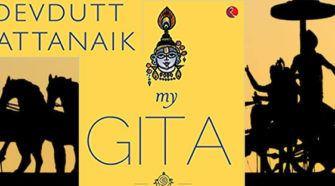Watching this series, I learned a new term, ‘limited-series.’ You see, we had two distinctions with stories on the screen, to begin with. One was at a three-hour-long format called the Movie. When stories were ‘too long to fit in a movie format, we had the serial — Typically, thirteen or twenty-six half-hour episodes telecasted every week on Doordarshan. Then came the epics, hour-long episodes, running for around a hundred weeks. Do not associate epics with mythology/history-based shows; even ‘Chandrakanta’ was termed an epic. After story-based content, we moved into non-story-based content. You know that a story has an arc that will eventually get completed, and hence we get a limit on the number of episodes for the show. With non-story-based content, we can stretch the line to infinity; thus, we got the ‘daily soap.’
The problem with daily soaps is that the show’s cast is entirely engaged for the show’s duration. So, these actors are unable to work on different projects and stay committed to one show. For established actors, this is an unattractive proposition. To enable established actors to be cast on television, the concept of ‘seasons’ was formulated. Serials that run in a slot of two to three months every year. The format enabled marquee actors to be cast, raising the profile of television.
However, ‘seasons’ ran into a snag. Since they were not a routine telecast, seasons were bad at retaining viewership. The viewership peaked at the first episode and was in secular decline for the remainder of the season, with a slight bump for the final episode. Producers wanted to have the audience of the first episode for their entire season (Read this line as Producers wished to have the advertising dollars for the first episode for the whole season.) And so came the concept of dumping all episodes on day one itself. Obviously, this can be done on the web and not on television. Thus a web series meant all episodes of a season on day one.
I find it challenging to keep track of series from one year to the next. And if you are like me, you are put off by these multi-season series. For example, I have not seen ‘Game of Thrones.’ Instead of waiting a year for the next season, I thought, why not let the series complete before watching it all at once. However, after the final season aired, the frustrated cum angry look on its regular viewers was enough for me to skip the series.
To catch viewers like me, who are not interested in multi-season series, show producers have introduced a new format. A single-season series with a fixed number of episodes — ‘a limited series.’
The long-winded introduction so far has not touched the series JL50 yet. Have some patience as I ask you, what is the difference between a ‘limited series’ and the thirteen-episode ‘serials’ that we began with?
As they say ‘Duniya gol hai,’ we have traveled in time to reach the same place that we began with, albeit with a minor difference.
In JL50, we do the same thing, a plane takes off in the mid-eighties, travels in time, and lands after thirty-five years. But it reaches the same place we began with, albeit with a minor difference.
JL50 is an Indian sci-fi drama based on science. No rishi-munis enable the appearing or disappearing act, nor does a gin help with the time-travel bit. If they are not flying over the Bermuda triangle, the only way airplanes can experience time dilation is when they travel through wormholes.
Talking of Planes and time-travel, two series immediately spring to mind, one is the series ‘Lost’ and the other is the recent Netflix series’ Missing.’ ‘Lost’ got lost in the multiple seasons and even multiple timelines it inhabited. Ultimately it had to approach a church to unite all the characters and send them to the afterlife. The series ‘Missing’ is also trying to apply Biblical theories to their limbo. However, JL50 stays away from religious connotations and is rooted firmly in Physics.
Time travel is brought about by a Scientist (Biswajit) who calculates the precise location of a wormhole. He uses ideological skullduggery to enlist an ultra-leftist group to hijack a plane (JL50) to fly into the said wormhole. But, remember it was the eighties, and maybe the Biswajit used a log-table instead of a calculator. Instead of his predicted time dilation of a few hours, Biswajit and the plane jump by thirty-five years.
To avoid dealing with the multiple character graphs of the passengers, JL50 crashes killing all of them. Only two central characters survive, Biswajit and the lady pilot Bihu Ghosh. In comes Abhay Deol as CBI officer Shantanu to investigate JL50.
If Abhay Deol is starring in a project nine out of ten times, I end up watching it. This fellow has a knack for doing odd things and has carved a genre of his own. Right from ‘Manorma Six Feet Under,’ his choices are always interesting, especially when he is the sole established actor. If he is an ensemble or paired opposite someone famous, then chances are —ehh.
For example, this series deals with quantum physics, time-travel paradoxes, alternate realities, all these heavy topics in just four episodes. Just like a tennis pro who selects the ball with the least fluff, the series delivers a pure serve. And, it should be applauded for it. It manages this feat because the series focuses only on its central characters, Biswajit, Bihu, and Shantanu. The story is about these three people and ‘what ifs’ over a period of thirty-five years. Simple, tight, and an easy watch, JL50 reminded me about the Panchatantra stories. Does this story have a moral? Maybe, the moral is, more such ‘limited-series, please.
And why not! A series like ‘Dark’ gets ‘LOST’ in multiple timelines, parallel universes. You need to visit forums to understand time-trees, chicken-egg conundrums. It sucks out the fun from the story and you are treating it more like a course in physics, wherein the underlying ‘physics’ itself is faulty. A limited series like JL50 can be enjoyed as pure drama with a ‘limited’ dose of sci-fi.














No Comment